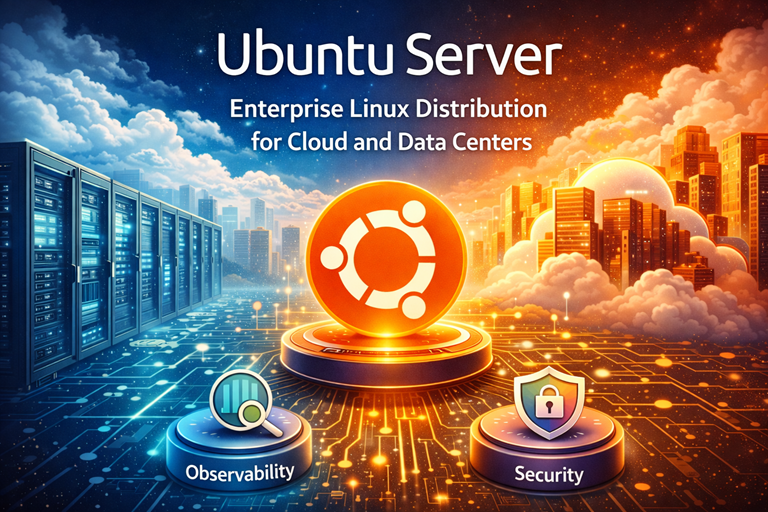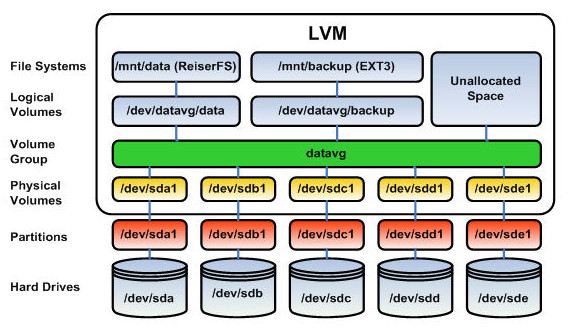Ubuntu Server: Enterprise Linux Distribution for Cloud and Data Centers

Ubuntu Server: The Ultimate Linux Distribution for Enterprise and Cloud Infrastructure
Ubuntu Server stands as one of the most trusted and widely-deployed Linux distributions in enterprise environments, data centers, and cloud infrastructures worldwide. With its robust architecture, extensive hardware support, and enterprise-grade security features, Ubuntu Server delivers unmatched reliability and performance for mission-critical applications.
📑 Table of Contents
- Ubuntu Server: The Ultimate Linux Distribution for Enterprise and Cloud Infrastructure
- Why Choose Ubuntu Server?
- Key Features and Capabilities
- Installation and Deployment Options
- Server Management and Administration
- Popular Use Cases and Applications
- Version History and LTS Releases
- Download Ubuntu Server
- Getting Started with Ubuntu Server
- Community and Enterprise Support
Why Choose Ubuntu Server?
Enterprise-Grade Reliability
Ubuntu Server provides exceptional stability and reliability that enterprises demand. With Long Term Support (LTS) releases offering 5 years of security updates and maintenance, organizations can deploy Ubuntu Server with confidence knowing their infrastructure will remain secure and supported.
Extensive Hardware Compatibility
Ubuntu Server supports the widest range of hardware architectures, from x86 and ARM to IBM Z and POWER systems. This comprehensive hardware support ensures seamless deployment across diverse infrastructure environments.
Cloud-Native Architecture
Built for modern cloud environments, Ubuntu Server excels in:
- Container Orchestration: Native Docker and Kubernetes support
- OpenStack Deployment: Optimized for private and public cloud infrastructure
- Microservices Architecture: Perfect foundation for modern application development
- DevOps Integration: Seamless CI/CD pipeline integration
Key Features and Capabilities
Security First Approach
Ubuntu Server implements industry-leading security measures:
- AppArmor Security Framework: Mandatory access control for applications
- Unattended Upgrades: Automatic security patch deployment
- UFW Firewall: Simplified yet powerful firewall management
- Snap Package Security: Isolated application deployment
Performance Optimization
- Kernel Optimization: Latest stable kernel with performance enhancements
- Memory Management: Advanced memory allocation and garbage collection
- I/O Performance: Optimized for high-throughput applications
- Network Stack: Enhanced networking performance for data-intensive workloads
Installation and Deployment Options
Traditional Installation
Ubuntu Server offers flexible installation options including:
- Minimal server installation for resource-constrained environments
- Full server installation with comprehensive package selection
- Custom partitioning and RAID configuration
- Network-based installation and deployment
Cloud Deployment
Deploy Ubuntu Server instantly across major cloud platforms:
- Amazon Web Services (AWS): Pre-configured AMIs for instant deployment
- Microsoft Azure: Optimized images for Azure infrastructure
- Google Cloud Platform: Ready-to-use instances with GCP integration
- Private Cloud: OpenStack and VMware compatibility
Server Management and Administration
Package Management
Ubuntu”s APT package management system provides:
- Over 50,000 software packages in official repositories
- Automated dependency resolution and conflict management
- Secure package verification and integrity checking
- Snap package support for containerized applications
System Monitoring and Maintenance
- Landscape: Enterprise-grade systems management
- Netplan: Simplified network configuration
- Systemd: Modern init system and service management
- Log Management: Centralized logging with journald
Popular Use Cases and Applications
Web Server Infrastructure
Ubuntu Server excels as a web server platform with optimized support for:
- LAMP Stack: Linux, Apache, MySQL, PHP deployment
- NGINX: High-performance web server and reverse proxy
- Node.js: JavaScript runtime for scalable applications
- Python/Django: Web framework deployment and optimization
Database Server Solutions
- MySQL/MariaDB: Relational database management
- PostgreSQL: Advanced object-relational database
- MongoDB: NoSQL document database
- Redis: In-memory data structure store
Container and Microservices Platform
- Docker: Container runtime and orchestration
- Kubernetes: Container orchestration at scale
- LXD: System container management
- Podman: Daemonless container engine
Version History and LTS Releases
Current Supported Versions
- Ubuntu 22.04 LTS (Jammy Jellyfish): Latest LTS with 5 years support
- Ubuntu 20.04 LTS (Focal Fossa): Stable LTS release
- Ubuntu 18.04 LTS (Bionic Beaver): Extended support available
Download Ubuntu Server
LTS Releases (Recommended for Production)
Latest LTS Version: Ubuntu Server 22.04 LTS
Previous LTS: Ubuntu Server 20.04 LTS
Extended Support: Ubuntu Server 18.04 LTS
Legacy Versions (Archive)
Ubuntu Server 16.04.7
Ubuntu Server 14.04.6
Ubuntu Server 12.04.5
Getting Started with Ubuntu Server
System Requirements
- Minimum RAM: 1 GB (2 GB recommended)
- Storage: 2.5 GB available space
- Processor: 1 GHz processor or better
- Network: Internet connection for updates
Post-Installation Configuration
- Update System: sudo apt update && sudo apt upgrade
- Configure Firewall: sudo ufw enable
- Set Up SSH: sudo systemctl enable ssh
- Install Essential Tools: sudo apt install htop curl wget git
Community and Enterprise Support
Community Resources
- Ubuntu Forums: Community-driven support and discussions
- Ask Ubuntu: Stack Exchange Q&A platform
- Ubuntu Wiki: Comprehensive documentation
- IRC Channels: Real-time community support
Enterprise Support Options
- Ubuntu Pro: Extended security maintenance
- Canonical Support: Professional technical support
- Managed Services: Fully managed Ubuntu infrastructure
- Training and Certification: Official Ubuntu training programs
Ubuntu Server continues to set the standard for enterprise Linux distributions, offering unmatched reliability, security, and performance for modern infrastructure demands. Whether deploying a single server or managing thousands of instances across hybrid cloud environments, Ubuntu Server provides the foundation for success.
Was this article helpful?
About Ramesh Sundararamaiah
Red Hat Certified Architect
Expert in Linux system administration, DevOps automation, and cloud infrastructure. Specializing in Red Hat Enterprise Linux, CentOS, Ubuntu, Docker, Ansible, and enterprise IT solutions.


